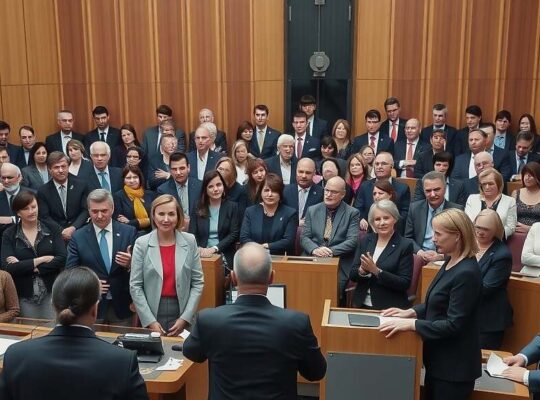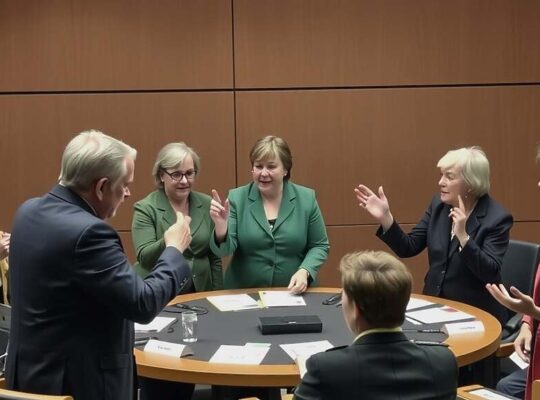The German government is considering implementing a supplemental fee for residents of social housing units whose income exceeds established need-based thresholds, a proposal championed by Federal Housing Minister Verena Hubertz of the Social Democratic Party (SPD). The initiative, aiming to address the dwindling availability of affordable housing, has sparked debate about fairness and the effectiveness of current social housing policies.
Hubertz pointed to a similar “misallocation fee” already in place in the state of Hesse as a successful model. This system levies an additional charge when an individual’s income surpasses the defined poverty line, effectively recouping some of the subsidies intended for those in genuine need. The Minister specifically questioned the rationale of allowing individuals earning professional salaries, like an architect, to reside in housing constructed with taxpayer funds. She urged other states to adopt similar measures, signaling a shift in the government’s approach to social housing allocation.
The proposal reveals a growing recognition within the SPD that the current system, designed to provide affordable housing for low-income families, is potentially being exploited or, at best, not optimally serving its intended beneficiaries. This is occurring against a backdrop of a shrinking social housing stock – a problem largely attributed to rising construction costs, bureaucratic hurdles and the conversion of subsidized units to market-rate housing.
In an attempt to counteract this trend, Hubertz emphasized the significant investment, totaling approximately €50 billion through 2029, being allocated by the federal government and states to bolster social housing construction. While acknowledging the substantial financial commitment, critics contend that simply increasing the supply of new subsidized units isn’t a complete solution without addressing the underlying issues of allocation and affordability. Furthermore, the focus on “simple and serial” construction methods, while potentially speeding up the building process, raises concerns about the quality and long-term sustainability of these new housing projects.
The potential implementation of these supplemental fees represents a politically sensitive move, likely to face pushback from tenant advocacy groups and potentially draw accusations of penalizing working-class individuals. The government will need to carefully navigate these concerns and clearly articulate the rationale behind this policy shift if it hopes to gain broader public support and ultimately reverse the decline in available social housing.












